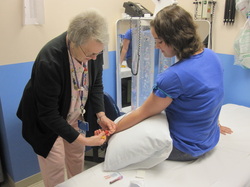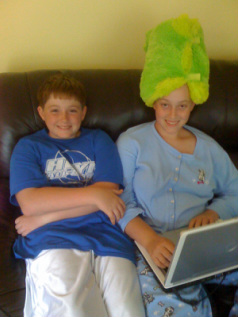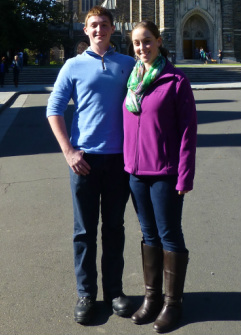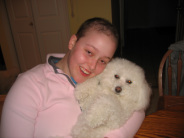
I'm talking about real-world stories and strides; fact and not fiction.
First, there is this awesome article:
http://www.theatlantic.com/health/archive/2014/02/plight-of-a-young-cancer-survivor/283710/.
THE PLIGHT OF YOUNG CANCER SURVIVORS. That’s like an oxymoron isn’t it? To put plight and survivor in one sentence? They seem like complete contradictions of each other. Sadly, as the article describes, it is a harsh truth.
What I find the most poignant in this article are the concise patient narratives that describe the major challenges faced by adolescents and young adults (also known as AYA's) after they have completed their treatment. Ironically, they are all issues I have written about since beginning this blog: fear of recurrence, post-traumatic stress disorder, fertility challenges, the importance of finding cancer buddies, the difficulties that come with missing school, and a host of other things. Maybe I was on the right track after all! I think so many people underestimate the potential lifelong impact of treatment.
But, instead of using this post for advice, as I usually do, I’m just leaving this article here as a shining example of the fact there is a huge population of AYA’s out there who are dealing with the same issues you and I face each day. I always like to know I'm not the only one. Maybe one day this kind of article will not be necessary, because there will be adequate psychosocial and medical support for the unique needs of adolescents and young adults.
That leads me to my next exciting find, the one that made me do a little dance in my apartment and almost cry....
"The time has come to introduce TCT to America and to launch a program for teen/young adult cancer patients at UCLA. This disease should be a mere comma in their lives, not a devastating full stop. It's a big ambition, but we can get there by working together." - Roger Daltrey
Here is the article: http://www.cbsnews.com/news/program-to-help-forgotten-teen-cancer-patients/
When I first saw the title in my Facebook news feed, I did a double-take. I honestly wondered if it was real. It was exactly what I was waiting to see: an entire clinic dedicated to the medical and psychosocial needs of adolescents and young adults with cancer.
"We provide the holistic care that they need, not just the medical care, but the psycho-social support.” - Dr. Noah Federman
I have always been a proponent of increased attention to the AYA population because of the unique psychosocial issues they face. That is, of course, why I started this blog.
However, I never realized they were actually a medically high risk population too. According to the article, “Since 1975, cancer survival rates for children 14 and under have increased by 25 percent. Adults over 40 have seen a nearly 20 percent gain over the same time period. Yet, survival rates among 20 to 39 year olds only increased by about 13 percent. Cancer patients ages 15 to 19 had survival rates increase by about 17 percent.” These are major differences, depressing differences. This clinic is, therefore, UNBELIEVABLY AWESOME because it is tackling two major obstacles all at once. It is effectively combining the science of treatment advances with the art of supportive care, in ways that have the potential to revolutionize cancer treatment for this vulnerable population.
To learn more about the amazing work happening at UCLA and for awesome AYA resources, visit their website here: http://www.uclahealth.org/main.cfm?id=2213
I feel so much hope knowing that a major medical institution has made such a movement towards improving the quality and quantity of life for adolescents and young adults diagnosed with cancer. If and when I get myself through medical school, I could only hope to work in such a clinic. Maybe I'll be lucky and every major hospital in this country will have an AYA clinic by then. After all, I'm giving them a head start because it will be at least 5 years until I'm anywhere close to that :)




 RSS Feed
RSS Feed

